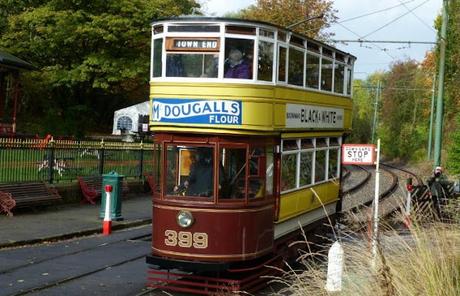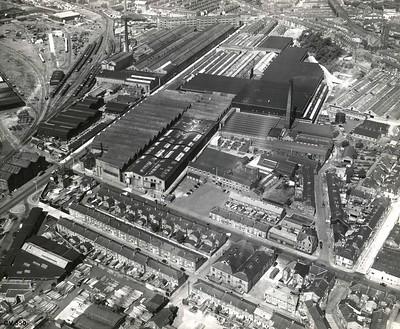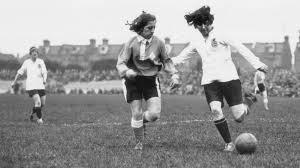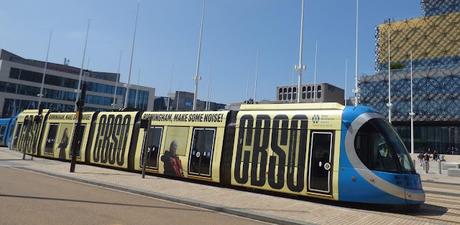
a Dick Kerr & Co. tram (Crich Museum)
Dick Kerr & Co Works (a very brief review):A site on the east side of Strand Road, Preston had been intermittently used for railway work since the 1840’s. In 1898 the Electric Railway and Tramway Carriage Works Ltd (ER&TCW) took over the site. This company had strong links with Dick Kerr & Co. The building of Preston Dock had involved the diversion of the river Ribble and associates of Dick Kerr & Co built the factory building which still stands on the west side of Strand Road in 1900.

the Dick Kerr Factory, Preston
This site occupies the space between the road and the original river bank. The two sites became a major center of tram building and electrical equipment manufacture. Dick Kerr & Co took over the West works in 1903 and ER&TCW became the United Electric Car Company in 1905.By 1914, the company employed around 2,000 people. They produced electrical equipment for tramways and railways and built over 8,000 tramcars, for service in the UK and abroad, including to the Hong Kong Tramways and Buenos Aires tramways operated by the Anglo-Argentine Tramways Company.1930 saw the transfer of the traction electrical work to Bradford and the closure of West works until the late 30’s. East works continued making buses and trams including a large order for Blackpool (I wasn’t going to mention the jewel of the north).The Dick, Kerr Type tram was the classic British tram design. It was the most common tram seen on Britain's tramways until the 1950s. Many different types of the tram were designed.Needless to say the market for trams declined and there followed a jigsaw of mergers and acquisitions before the Strand Road site was virtually closed by about 1995. Which co-incidentally was the year I moved to Preston.It is fair to say that the Dick, Kerr & Company is now far more famous for its Ladies Football Club than for trams. The team remained in existence for over 48 years, from 1917 to 1965, playing 755 games, winning 682, drawing 39, and losing 34.
Dick Kerr women's football team
The women on the team had joined the company in 1914 to produce ammunition for the war. Although women had initially been discouraged from playing football, it was believed that such organised sporting activity would be good for morale in wartime factories.During a period of low production at the factory in October 1917, women workers joined the apprentices in the factory yard for informal football matches during their tea and lunch breaks.After beating the men of the factory in an informal game, the women of Dick, Kerr formed a team, under the management of an office worker. Players were paid 10 shillings a game by Dick, Kerr & Co. to cover their expenses.During its early years, matches played for charity attracted anywhere from 4,000 to over 50,000 spectators per game. The team faced strong opposition by The Football Association (FA), who banned the women from using fields and stadiums controlled by FA-affiliated clubs for 50 years (the rule was repealed in 1971).I seem to have wandered off to the football side of things but never mind trams have made a big comeback. Indeed I was on one this week in Birmingham and it’s fab.
a modern day Birmingham tram
I rather like this poem:The Tram Journey
You got on the same tram
only to get off before me,
your steps were slow,
your hand shook slightly,
your gaze was lit by nostalgia…
Looking at your gentle face,
your boyish air – grey-haired! –
I saw myself there.
I wondered about your life,
I thought about our journey,
the road we were sharing
on this tram!
People got on,
People got off –
together on this same tram!
Our faces
masked our uncertainties,
only your eyes shone,
as you smiled tentatively
…then it was time,
you treated me to a last smile,
as you left your seat
and the tram continued
on its way.
Milena Ercolani
found at http://www.milenaercolani.blogspot.co.uk/ and translated by Pasquale Iannone and Robyn Marsack.Thanks for reading, Terry Q. Email ThisBlogThis!Share to XShare to Facebook
